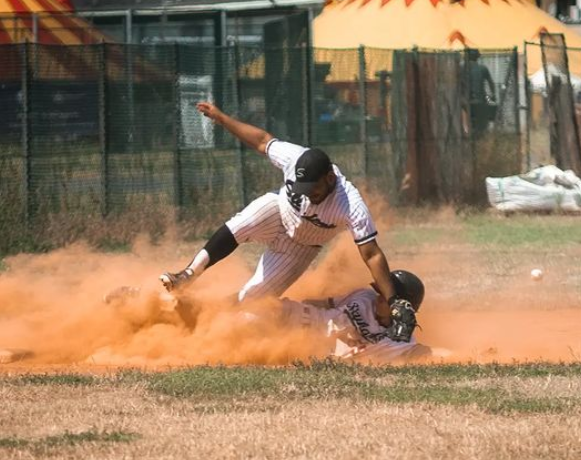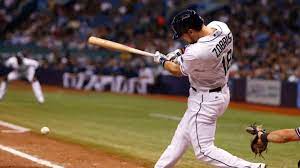In baseball, utility players hold a unique and essential role on the team. These versatile athletes may not possess the offensive prowess necessary for a regular starting position, but their ability to adapt and play multiple defensive positions makes them invaluable assets to their teams.
Over the years, numerous utility players have demonstrated their importance in Major League Baseball (MLB) by filling in gaps and providing depth in the lineup. Ranging from infielders to outfielders, these players display a level of adaptability and skill that allows their team to function seamlessly despite sudden changes or injuries. The contributions of utility players are not only evident in their defensive capabilities but also in their ability to contribute offensively, even if their primary focus is defense.
Players like Brock Holt and Ben Zobrist have made significant impacts on their teams by excelling in this demanding role. As the game continues to evolve, utility players remain a crucial aspect of any successful baseball team, showcasing the importance of adaptability and resilience in the sport.
Contents
What is a Utility Player
A utility player in baseball is an individual who is skilled in playing multiple positions on the field, rather than being limited to just one primary position. These players are highly valued for their versatility, as they offer managers flexibility in creating lineups and making strategic decisions during games.
Utility players, also known as utility men, or the utilityman. They can play various defensive positions based on the team’s needs at any given time. Their adaptability allows them to fit into different roles from game to game, though they might not play consistently.
Some common attributes shared by utility players include their dependable defensive skills, ability to contribute offensively, and willingness to embrace different roles on a team. Managers often rely on utility players to fill in for injured teammates or provide late-inning defensive substitutions.
While many utility players may not have the same level of offensive prowess as regular starters, their ability to play multiple positions makes them essential members of their teams. In high school and college baseball, utility players often demonstrate leadership and value, eventually earning a more permanent position on the team as they develop.
Skills Required for a Utility Player
Defensive Versatility
One of the key attributes of a utility player in baseball is the ability to play multiple defensive positions effectively. This requires a strong understanding of the game, as well as excellent athleticism, coordination, and mental focus. The more positions a player is proficient in, the more valuable they become to their team. This is due to their ability to fill gaps in the roster when injuries or other unforeseen circumstances occur. Some famous examples of utility players include Brock Holt and Ben Zobrist.
Offensive Abilities
While the primary focus of a utility player may be their defensive proficiency, it is also important for them to possess a solid offensive skillset. This includes the ability to hit for average, demonstrate solid plate discipline, and have a good understanding of base running. A utility player may not be expected to have the same offensive output as a regular starter, but their contribution on this front can significantly impact a team’s performance.
For a utility player to be considered valuable to a team, they must also demonstrate consistency and adaptability when it comes to offense. This means being able to quickly adjust their hitting approach and timing depending on the situation and pitcher they face. The ability to execute bunts, hit-and-run situations, and other situational offensive strategies is also essential for a successful utility player.
Overall, the most important aspect for a utility player is their ability to contribute to the team’s success in a variety of ways, without necessarily being a standout player in any one category. By mastering versatility and being a reliable, consistent performer, a utility player becomes an invaluable asset to their team.
Famous Utility Players in Baseball History
Utility players in baseball are known for their ability to effectively play multiple positions, often excelling both defensively and offensively. Throughout the history of Major League Baseball (MLB), there have been several players who have gained fame and recognition for their versatility on the field.
One such player is Brock Holt who has played for several teams in the MLB as a utility player. Holt has been recognized for his capability to play various defensive positions, demonstrating his exceptional skills and adaptability in the game.
Another notable utility player is Ben Zobrist In 2009, Zobrist and the Tampa Bay Rays redefined the utility role, with Zobrist playing 152 games and amassing 599 plate appearances without having a set position. His performance earned him praise and recognition as one of the best utility players in MLB history.
Jose Oquendo is also regarded as one of the greatest utility players in baseball history. Though he spent some time as a middle-infield partner to the legendary Ozzie Smith, Oquendo is best known for his incredible versatility. His exceptional defensive abilities at both second base and shortstop have solidified his place in MLB history.
Additionally, players like Kike Hernandez and Rance Mulliniks have also made their mark as utility players. As their careers have progressed, they have earned recognition for their adaptability and contribution to their teams’ success.
Today, some of the best utility players include: Ezequiel Duran, Chris Taylor, and Brendan Donovan.
Benefits of Having a Utility Player on a Team
A utility player can be a valuable asset to a baseball team, offering numerous advantages. One of the primary benefits is the flexibility and depth they bring to the roster. By having the ability to play multiple positions, utility players can fill in for injured or resting players, preventing any significant gaps in the team’s lineup.
Another advantage of utility players is their potential to provide a strategic edge during games. Managers can make defensive substitutions based on specific situations, tailoring their team’s defensive play to counter their opponent’s offensive strategy.
Utility players also contribute to managing player fatigue and injury prevention. By giving regular starters a rotating day off, utility players help keep the team’s primary players well-rested and reduce the risk of injuries.
In addition to their defensive abilities, utility players can be reliable hitters. While they may not consistently make headlines, their batting skills can still contribute to the team’s success.
Lastly, having utility players on the bench can increase a team’s chances of winning a championship. A team that has two to three solid utility players will be better equipped to face unexpected challenges and adapt to various in-game situations.
Challenges Faced by Utility Players
Utility players in baseball provide versatility and depth to a team, as they can play multiple defensive positions. However, they face several challenges in their pursuit of success, both on and off the field.
One notable challenge faced by utility players is the lack of starting job security. Unlike everyday players who have a consistent role on the team, utility players often fill in as needed due to injuries, scheduled rest days, or late-game defensive changes. This unpredictable game time can make it difficult for them to establish a solid rhythm and stay sharp in their skills.
Another challenge relates to the development and maintenance of skills across multiple positions. As utility players are expected to be proficient in various defensive roles, they need to invest more time and effort into honing their abilities at each position. This often requires additional practice and focus in order to excel in a wide range of responsibilities on the field.
Lastly, the utility player’s value is sometimes underestimated or overlooked, as their contributions might not be as visible as those of star players. This can impact their recognition, contract negotiations, and overall career trajectory. Utility players may need to work harder to prove their worth and demonstrate their importance in a team’s overall success.
Developing a Utility Player
Training Programs
A well-rounded training program is essential for developing a utility player in baseball. These programs should focus on improving skills, such as fielding, throwing, catching, and hitting, all of which contribute to their versatility on the field. In addition, training programs should include regular practice across various defensive positions to enhance their adaptability in different game scenarios.
It’s also important to emphasize the development of athleticism, as utility players need to possess speed, strength, and agility to excel at multiple positions on the field. Incorporating exercises like agility drills, sprints, and strength training into their training routine will help them become a more valuable asset to their team.
Mentorship
Mentorship can play a crucial role in the growth of a utility player. Learning from experienced players and coaches who have played or coached multiple positions in baseball can provide valuable insights into the nuances and strategies associated with each role. This knowledge, combined with hands-on experience, will help the utility player master the art of playing different positions with confidence and efficiency.
Establishing a strong rapport with mentors is important for the success of any utility player. By actively seeking feedback and incorporating constructive suggestions, a utility player can continuously learn and grow their skillset, ultimately becoming a more effective and valuable team member.
Coaching
Coaching is an integral part of developing a utility player, as qualified coaches possess the expertise and experience needed to hone a player’s abilities across various positions. By working closely with coaches, utility players can receive tailored training designed to address their strengths and weaknesses, and adapt their gameplay to excel in different scenarios.
Coaches should also ensure that utility players are provided with ample opportunities to play different positions during practices and games. This hands-on experience will help prepare them for the challenges they may face during high-pressure situations, allowing them to make better decisions and contribute positively to their team’s success.



